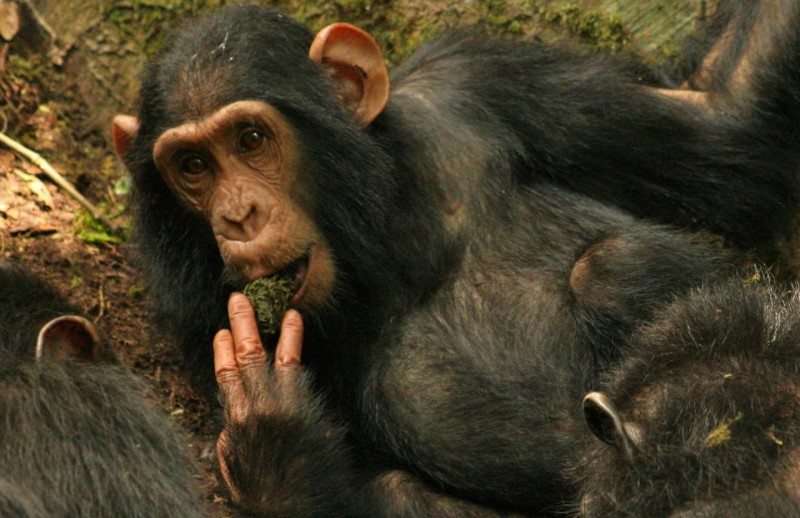
The Sonso chimpanzee community living in Uganda’s Budongo Forest has been observed passing a new natural behavior from individual to individual by a team made up of scientists from the University of St. Andrews, the University of Neuchâtel, Anglia Ruskin University, and the Université du Quebec. This is the first time that social transmission has been documented in a wild community. The chimpanzees developed variants of using “leaf-sponges,” which are folded leaves used for drinking water. The variations included adding moss to the leaves to make a drinking device, and reusing a discarded leaf sponge. Science Daily reports that by using a technique called network-based diffusion analysis, the researchers estimated that each time a “naïve” chimpanzee observed moss-sponging, this individual was 15 times more likely to develop the behavior. Thibaud Gruber of the University of Neuchâtel explained that such social learning probably originated in an ancestor common to great apes and humans. “This study tells us that chimpanzee culture changes over time, little by little, by building on previous knowledge found within the community. …In this respect, this is a great example of how studying chimpanzee culture can help us model the evolution of human culture. Nevertheless, something must have subsequently happened in our evolution that caused a qualitative shift in what we could transmit, rendering our culture much more complex than anything found in wild apes. Understanding this qualitative jump in our evolutionary history is what we need to investigate now,” he said. To read more about chimpanzee tool use, see ARCHAEOLOGY's "Cultured Cousins?"

No comments:
Post a Comment